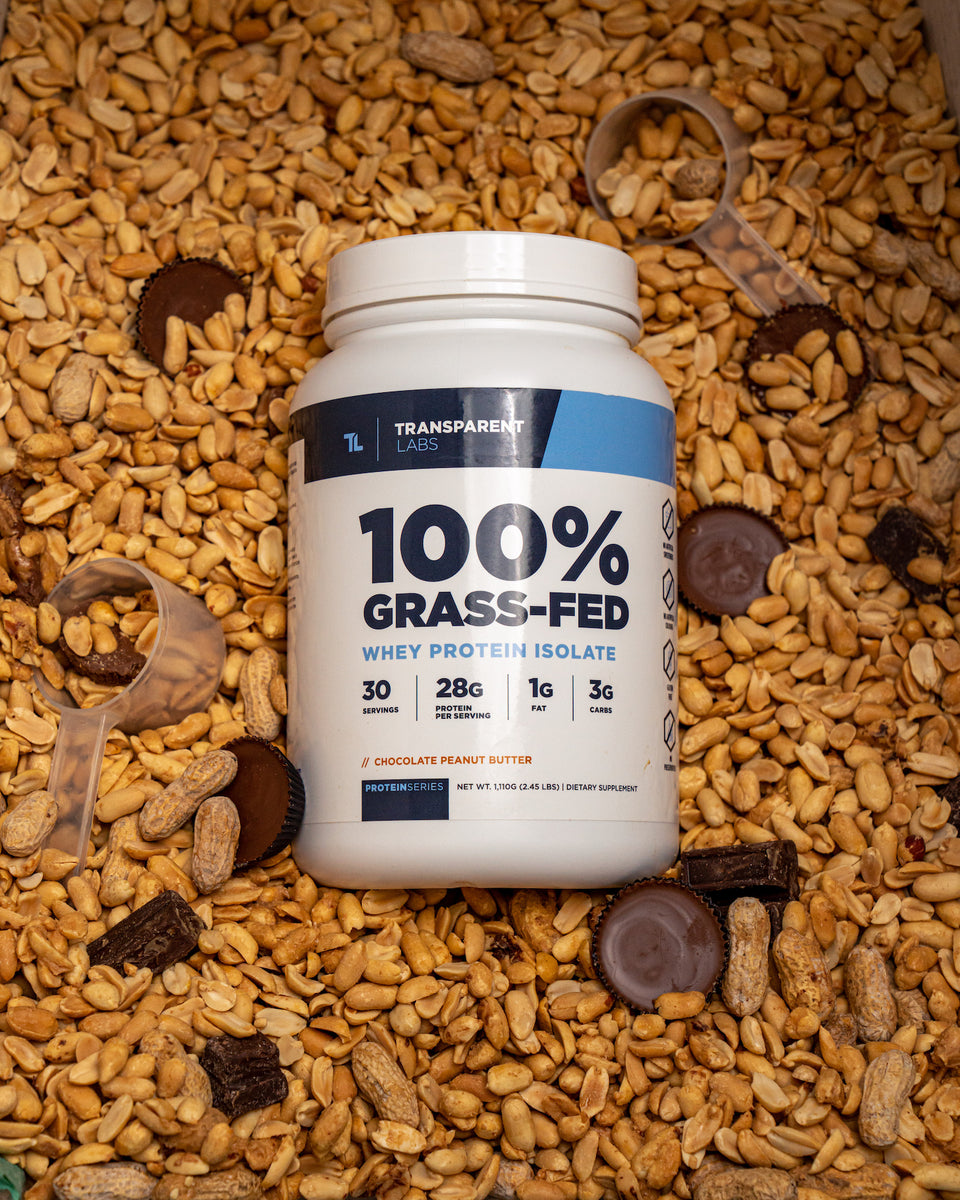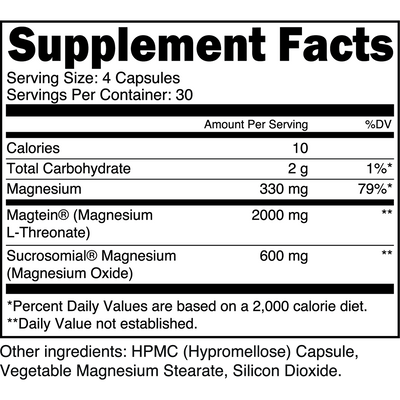Keto Protein Powder: How to Choose the Right One for You

Cutting out carbs and replacing them with healthy fats and proteins is a familiar concept to all keto lovers. But, it can be hard to keep track of how much fat, protein, and carb you consume in each meal.
This is where keto protein powders come in handy — they help fast-track you into ketosis (more on that later) and meet your athletic and health needs (think weight loss, muscle growth, and wrinkle-free skin).
But beware, as not all protein powders are keto-friendly. So, we wrote this guide to point you towards the high-quality, keto-friendly protein powders. Read on to find out what makes a protein powder keto-friendly, different types of keto powders and their benefits, and how to choose the right one for your low-carb lifestyle.
What Makes a Protein Powder Keto-Friendly?
To understand what constitutes a keto protein powder, we need to talk about the ketogenic diet. Here's a mini-refresher on the keto diet:
- It's high-fat and low-carb: The ideal nutritional makeup is 65-70% fats, 25-30% protein, and ≤5% carbohydrates, as percentages of total calorie intake.
- It induces ketosis: Eating a very-low-carb diet causes your body to rely primarily on fats instead of glucose for energy. This increase in fat metabolism produces a higher amount of molecules known as ketones, hence the name, ketosis.
Similarly, a keto protein powder should be low in net carbs (total carbs minus fiber and sugar alcohols like sorbitol and xylitol) to help your body maintain ketosis. Yet, some critics argue a keto-friendly protein powder would kick you out of ketosis since excess protein consumption from protein powders could increase gluconeogenesis.
Thankfully, science has shown us this isn't the case (at least, if you’re not consuming exorbitant amounts of protein). For instance, a 2008 study published in The American Journal of Clinical Nutrition found that a high-protein ketogenic diet reduced hunger and food intake, which are key signs of ketosis.
In contrast, a 2017 study in The Journal of Physiology showed that even though a low-carb, high-fat diet promoted fat loss in elite athletes, it also led to poorer performance during a race.
Therefore, it's best to consume plenty of protein on a keto diet, especially if you’re active.. In this case, a keto protein powder can help you get enough protein while adhering to a low-carb diet.
4 Types of Keto Protein Powders and Their Benefits
There are several keto protein powders with different health and training benefits.
1. Grass-Fed Whey Protein Powder

Grass-fed whey protein is a high-quality keto protein powder. That's because the term "grass-fed" means no junk (e.g., hormones, steroids, and GMO) is added to your protein powder.
Also, a 2019 study in The Journal of Nutrients explained whey protein is easily digested and absorbed in your body, making it the ideal pre- and post-workout supplement.
Whey protein can be further classified into:
- Whey protein concentrate: This type of whey protein contains a higher ratio of fat to protein so you can easily remain in ketosis.
- Whey protein isolate: While this whey protein form has a lower fat content, it has the highest pure protein concentration at 90% or more, as a 2004 study in The Journal of Sports Science and Medicine says. Whey protein isolate also has much of its fat and lactose removed, making it ideal for those who are lactose-intolerant or on a weight-loss program.
Besides that, whey protein is rich in branched-chain amino acids (BCAAs) — essential amino acids that are needed for muscle-building. What's more, a 2015 study in The Journal of Food Science points out whey protein promotes muscle growth "to a greater degree than other proteins such as casein and soy."
So, if you're looking to increase your muscle mass with a keto protein powder, check out Transparent Labs ProteinSeries 100% Grass-Fed Whey Protein Concentrate. It contains 24 grams of protein, 1.5 grams of fat, and 3 grams of net carbs per scoop.
Alternatively, the 100% Grass-Fed Whey Protein Isolate is one of the best low-carb options for lactose-intolerant individuals. It contains 28 grams of protein and 1 gram of net carbs in each serving. To up your fat intake, you can mix the Whey Protein Isolate with full-fat almond milk for a tasty milkshake.
2. Casein Protein Powder

Unlike whey, casein is valued for its slow-digesting properties. But before you discount its health benefits, here's why you should include casein protein powder in your diet:
- It’s a whole protein in micelle form, which means it clots in your stomach for slower digestion. This makes you feel satiated for a longer period. This is why casein is also often used as a meal replacement to reduce your calorie consumption and boost weight loss.
- It's also imbued with calcium and phosphorus for strong, healthy bones.
- It enhances post-exercise recovery and muscle growth. A 2012 study in The Journal of Medicine & Science in Sports & Exercise discovered consuming 40 grams of casein protein powder 30 minutes before bed increased muscle protein synthesis and aided post-exercise recovery.
That's why the Protein Series 100% Grass-Fed Casein is formulated with pure micellar casein derived from grass-fed cattle.
This keto-friendly protein powder is free from artificial sweeteners and fillers (100% naturally flavored and sweetened with stevia). It also comes in at 25 grams of protein, 0.5 grams of fat, and 3 grams of net carbs per serving.
Mix our Grass-Fed Casein with full-fat almond milk (to up your fat intake for ketosis) for the perfect bedtime drink. You can also combine it with a spoonful of medium-chain triglycerides (MCT) oil powder in between meals as the ultimate meal replacement.
3. Collagen Protein Powder

Collagen is a key protein for maintaining your tendons, ligament, tissue, and joint health. This helps promote muscle growth while reducing your risk of injuries during exercise. Besides that, collagen also keeps your skin youthful and wrinkle-free.
Unfortunately, collagen protein synthesis decreases with age. But the good news is, supplementing with collagen protein powder helps replenish your body's collagen content. For instance, a 2019 study in The Journal of Nutrients suggests that taking 15 grams of collagen peptides daily one hour after resistance training can increase lean muscle mass and strength.
Another 2019 study in The Journal of Nutrients found that participants who took 2.5 grams of collagen peptides daily for 12 weeks experienced "significantly improved skin hydration, elasticity, roughness, and density." In other words, collagen protein is highly bioavailable in the gastrointestinal tract, leading to efficient skin-boosting benefits.
For optimal athletic performance and skin health, our ProteinSeries Collagen Hydrolysate is made with hydrolyzed collagen peptides for quick digestion and absorption. It also contains 10 grams of protein and just 2 grams of net carbs per scoop. And the cherry on top? This protein powder comes in a delicious milk chocolate flavor.
To boost your fat content, blend this keto collagen powder with full-fat almond milk and MCT oil into a protein shake. You can also mix the Collagen Hydrolysate with our unflavored StrengthSeries Creatine HMB for increased muscle growth, strength, and endurance when doing weight-lifting or resistance training.
Note: As an essential amino acid metabolite, HMB is keto-friendly. Plus, our Creatine HMB is free from artificial sweeteners, colored dyes, unnecessary fillers, and harmful additives.
4. Pea Protein Powder

Plant-based protein powders seem to get a bad rep in the fitness community due to being incomplete protein sources, meaning they lack certain essential amino acids (EAAs) that are necessary for building muscle. While it's true some plant-based protein sources like wheat and beans (which aren't keto-friendly) are incomplete proteins, some vegan protein powders have a full amino acid profile by combining multiple incomplete proteins, like pea protein powder and rice protein powder, to create a complete EAA profile.
With that said, vegan protein powders can be as effective as animal-based ones in achieving your fitness goals. Two recent studies (one in The Journal of Sports and another in The Journal of Current Developments in Nutrition) emphasized both pea and whey protein powder had similar effects on body composition, muscle growth, muscular strength, energy expenditure, and appetite.
So, if you're a vegan on a ketogenic diet, or cutting back on meat, the ProteinSeries Organic Vegan may be the protein powder for you. Made with a 2:1 rice to pea protein ratio for a smooth texture, this certified USDA Organic protein powder packs 24 grams of protein, 2 grams of fat, and only 2 grams of net carbs in every scoop.
How to Choose a Keto Protein Powder
Choosing a keto protein powder that works for you is all about the ingredients. Below, we show you what to look for (and what to avoid).
1. Look Beyond the Label
We've mentioned that a keto protein powder should be low-carb. But, does that mean all low-carb protein powders will do the trick? Not necessarily. Manufacturers can easily paste a "low-carb" or "keto-friendly" claim on the label, yet artificial sweeteners still appear in the ingredient list.
That's why you should always look beyond the label — especially the claims — and examine the full ingredient list of protein powders. Your keto protein powder should not include:
- Additives
- Artificial sweeteners*
- Added sugars
- Fillers
- Food colorings
- Genetically modified organisms (GMO)
- Gluten**
- Hormones
- Hydrogenated or partially hydrogenated oils
- Soy
- Steroids
*Keto-friendly sweeteners such as stevia and monk fruit are acceptable.
**The keto diet isn't necessarily gluten-free but it does eliminate most gluten-based products.
In essence, the ingredient list of a quality keto protein powder should read short and sweet. Certain keto protein powders may also contain high-fat ingredients such as MCT oil powder or avocado oil powder to boost ketosis. In this case, go ahead and chuck it in your shopping cart.
2. Check the Type of Protein Powder
Pick a protein powder that fits your athletic and health needs.
For instance, whey protein is highly recommended as a quick-digesting pre-workout or post-workout supplement. On the other hand, if you want to feel satiated for a longer time and boost your weight loss, casein protein powder will fit the bill. Or, if you're vegan, pea protein powder is a keto-friendly option.
3. Watch the Macros

Besides choosing the right protein powder, it's crucial to track how many macros you're getting from each serving. As a general guideline, your keto diet should be roughly 65% fats, 30% protein, and 5% carbs.
That's why your protein powder must be sugar-free and very low-carb (or no carbs, if possible). Avoid protein powders with delicious flavors like salted caramel that are also high in carbohydrates and sugar.
Even if a high-protein, low-carb protein powder has zero fats, don't rule it out as non-keto. To make it keto-friendly, you can always add a dose of healthy fats, such as coconut oil, avocado oil, or MCT oil powder. If you find it difficult to mix these oils with your protein powder, try using a powdered alternative like MCT oil powder.
Go Keto With Your Protein Powder
A keto protein powder can be a handy supplement to have around the house if you’re on a ketogenic diet. These low-carb protein powders make it a breeze to meet your protein needs without compromising ketosis.
Understanding keto protein powder properties and the various types of protein powders can steer you towards your ideal keto powder. And don’t forget to always inspect the ingredient list of a protein powder to avoid excess sugar sneaking into your keto diet.









